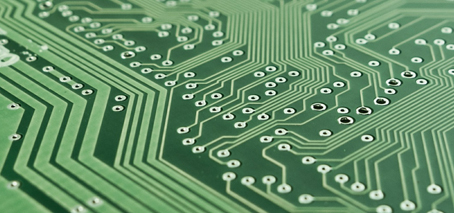FLEET addresses a grand challenge: reducing the energy used in information technology (IT), which already accounts for 5% of the electricity use on Earth, and is doubling every 10 years.
The current, silicon-based technology is 40 years old, and reaching the limits of its efficiency.
However, fundamental physical limits show that computing efficiency could still be several orders of magnitude better, which inspires us to search for a replacement technology.

For computation to continue
to grow, to keep up with society’s ever-increasing demands, we need more-efficient electronics. We need a new type of transistor that burns much less energy when it switches.
–Prof Michael Fuhrer
–FLEET Director
We have an insatiable demand for computation. Every year, the demand for computation grows by 70%.
And using computers consumes energy. Lots of energy.
Computing is achieved via microscopic switches called transistors – a couple of billion of them packed into each small computer chip.
And each time one of those transistors switches, a tiny amount of energy is burnt.
Consider the billions of transistors in each small computer chip, each switching billions of times a second, and multiply that by hundreds of servers in hundreds of thousands of factory-sized data centres…
For many years, the growing energy demands of computations were kept in check by ever-more efficient, and ever more-compact computer chips – a trend related to Moore’s Law, which observed that number of transistors in a given area doubled around every 18 months.
But Moore’s Law is ending. There are limited future efficiencies to be found in present technology.
FLEET will develop electronic devices that operate at ultra-low energy, enabling revolutionary new technologies to drive future electronics and computing, while meeting society’s demand for reduced energy consumption.

